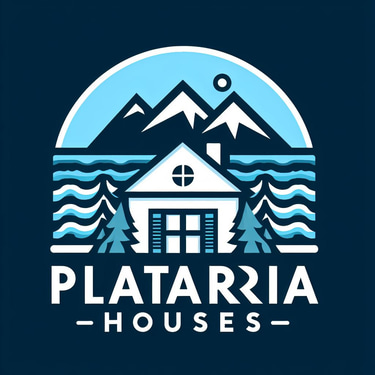A Beginner’s Guide to Greek
A Beginner’s Guide to Greek: Essential Phrases for Tourists Visiting Plataria
GREEK LANGUAGE


A Beginner’s Guide to Greek: Essential Phrases for Tourists Visiting Plataria
When visiting Plataria, a beautiful coastal village in Epirus, Greece, learning a few basic Greek phrases can significantly enhance your experience. Whether you’re ordering food at a taverna, asking for directions, or simply greeting locals, these essential phrases will help you navigate your stay and immerse yourself in the local culture.
While many Greeks, especially in tourist areas, speak English, using Greek greetings and phrases will be appreciated and can make your interactions smoother and more enjoyable. This beginner’s guide will provide you with the most important phrases to help you get by during your stay in Plataria.
1. Basic Greetings and Courtesies
One of the easiest ways to connect with locals is through simple greetings. Here are some phrases that will help you start any conversation on the right note:
Hello – Γειά σας (Yia sas)
Good morning – Καλημέρα (Kaliméra)
Good evening – Καλησπέρα (Kalispéra)
Good night – Καληνύχτα (Kalinychta)
Goodbye – Αντίο (Adío)
Please – Παρακαλώ (Parakaló)
Thank you – Ευχαριστώ (Efcharistó)
You’re welcome – Παρακαλώ (Parakaló) or Τίποτα (Típota)
Yes – Ναι (Ne)
No – Όχι (Óchi)
Using these simple greetings will go a long way in showing respect and friendliness to locals. Even just saying "Efcharistó" after receiving service can brighten someone’s day.
2. Ordering Food and Drinks
Dining out in Greece is one of the highlights of any trip. Here are some essential phrases to help you navigate the menu and order with confidence:
I would like… – Θα ήθελα… (Tha íthela…)
The bill, please. – Τον λογαριασμό, παρακαλώ. (Ton logariasmo, parakaló)
Water – Νερό (Neró)
Wine – Κρασί (Krasí)
Beer – Μπύρα (Bíra)
Bread – Ψωμί (Psomí)
Salad – Σαλάτα (Saláta)
Fish – Ψάρι (Psári)
Meat – Κρέας (Kréas)
Vegetarian – Χορτοφάγος (Chortofágos)
If you’re a fan of Greek cuisine, you’ll quickly pick up on food-related terms as many dishes use the same names worldwide. However, using Greek to order will enhance the authenticity of your dining experience.
3. Asking for Directions
While exploring Plataria and the surrounding region, you may need to ask for directions. Here are some key phrases that will help you find your way:
Where is…? – Πού είναι…; (Poo íne…?)
The beach – Η παραλία (I paralía)
The restaurant – Το εστιατόριο (To estiatório)
The hotel – Το ξενοδοχείο (To ksenodocheío)
How much does it cost? – Πόσο κοστίζει; (Póso kostízei?)
Straight ahead – Ευθεία (Efthía)
Left – Αριστερά (Aristerá)
Right – Δεξιά (Dexiá)
Near – Κοντά (Kondá)
Far – Μακριά (Makriá)
If you're traveling by bus or taxi, knowing these simple phrases can help clarify your route and ensure you reach your destination without confusion.
4. Shopping and Transactions
When shopping at local markets or stores, these phrases will help you interact with shopkeepers:
How much is this? – Πόσο κάνει αυτό; (Póso káni aftó?)
I’ll take it. – Θα το πάρω. (Tha to páro)
Do you accept credit cards? – Δέχεστε πιστωτικές κάρτες; (Décheste pistotikés kártes?)
Can I pay in cash? – Μπορώ να πληρώσω μετρητά; (Boró na pliróso metritá?)
Receipt, please. – Απόδειξη, παρακαλώ. (Apódixi, parakaló)
When shopping for souvenirs or local products, using basic Greek can make the transaction smoother and add a personal touch to the experience.
5. Emergencies and Important Phrases
While we hope you never encounter an emergency, it's always good to know a few critical phrases just in case:
Help! – Βοήθεια! (Voítheia!)
I need a doctor. – Χρειάζομαι έναν γιατρό. (Chriázome énan yatró)
Call the police. – Καλέστε την αστυνομία. (Kaléste tin astynomía)
Where is the hospital? – Πού είναι το νοσοκομείο; (Poo íne to nosokomío?)
I don’t feel well. – Δεν αισθάνομαι καλά. (Den esthánome kalá)
Having these phrases handy can be useful if you need assistance or face any unexpected situations during your trip.
6. Cultural Etiquette and Additional Tips
Using Greek phrases goes beyond just learning the words – it's also about understanding the cultural context. For example, Greeks often greet each other with a handshake or a light kiss on both cheeks, especially in more rural areas. When entering a shop or taverna, it's polite to say “Kaliméra” (Good morning) or “Kalispéra” (Good evening), and when leaving, a simple “Efcharistó” (Thank you) is always appreciated.
Another tip is to speak slowly and clearly. Greeks are usually very accommodating, and even if your pronunciation isn’t perfect, they will likely appreciate the effort and respond positively.
Plataria Houses
For travelers looking to immerse themselves in the culture and beauty of Plataria, Plataria Houses offers the perfect place to stay. This fully furnished traditional family home provides all the comforts needed for an enjoyable trip. Located in the heart of Plataria, it offers easy access to local attractions, dining spots, and the beautiful beaches of Epirus. With your basic Greek phrases in hand, you’ll feel even more at home while exploring the village. To learn more about Plataria Houses or to book your stay, visit Plataria Houses.
